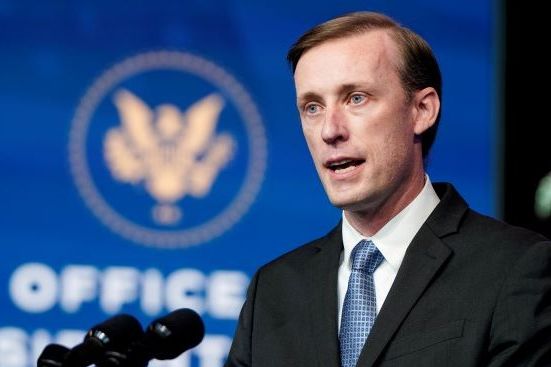Iran's Flagship Hardline Daily Slams Idea Of 'Interim' Nuclear Deal

The flagship hardline newspaper Kayhan criticized Saturday the notion of an interim arrangement as step towards reviving Iran’s nuclear deal with world powers.

The flagship hardline newspaper Kayhan criticized Saturday the notion of an interim arrangement as step towards reviving Iran’s nuclear deal with world powers.
Kayhan, financed and published under direct supervision of Supreme Leader Ali Khameni’s office, had been previously editorially consistent in opposing the 2015 deal, the JCPOA (Joint Comprehensive Plan of Action). The newspaper was responding to a report in Axios news website Wednesday that United States and Israeli officials had discussed the idea. The JCPOA was itself preceded by an interim agreement in 2013 under which Iran limited uranium enrichment in return for some easing of multilateral sanctions.
Kayhan said Tehran would not allow the US return to the 2015 nuclear deal, which it left in 2018, "by releasing a few billion dollars of frozen assets." While it long criticized the previous administration of President Hasan Rouhani for reaching and implementing the JCPOA, Kayhan now gave a more positive assessment of the “clever” new team under President Ebrahim Raisi (Raeesi).
"The US must effectively lift all main sanctions, provide a guarantee not to renege on its commitments again," the newspaper wrote. Without this, Iran would “not allow the US to become a member of the JCPOA again and find access to the trigger mechanism for automatic revival of sanctions.”
Full hands
Kayhan suggested Iran would resume talks with world powers in Vienna, on November 29 after a lapse since June, with “full hands,” referring to Iran’s expanding nuclear program – including stockpiles of 20-percent and 60-percent enriched uranium – and having survived the ‘maximum pressure’ sanctions introduced by previous president Donald Trump in 2018 and continued by President Joe Biden.
The new government in Tehran is also insisting that the Vienna talks will focus on the lifting of US sanctions in a verifiable manner rather than on further discussions on Iran’s nuclear program.
Referring to Tehran's uranium stockpile, the US Special Representative for Iran Robert Malley said Friday that Iran was "approaching the point of no return" for reviving the JCPOA. "Iran's advances are spreading alarm across the region... that's what's making the clock tick faster and making all of us say that the time is short for a return to the JCPOA," Malley warned.
An interim agreement might allow the US to ease back from its current position – Axios suggested the idea had come from a European state. The US source cited by Axios said an interim deal might see Iran freeze some enrichment while the US lifted its threats of punitive action against third parties over releasing money owed to Iran and perhaps allowed waivers on humanitarian goods to Iran.
Changing times
Speaking to Mehr news agency Saturday, Manouchehr Mottaki, foreign minister under President Mahmoud Ahmadinejad, said Tehran should take step-by-step actions restricting its nuclear activities if the United States eased sanctions, but he suggested the scenario was unlikely.
Former Iranian diplomat Kourosh Ahmadi reminded Etemad-e Melli newspaper of the interim deal struck in Geneva November 2013, which saw Iran freeze 20 percent enrichment in return for the lifting of some sanctions, which at that time were levied multilaterally, including by the European Union and the United Nations Security Council.
But present conditions are different from 2013, Ahmadi noted, stressing the situation had been changed by Trump's withdrawal from the JCPOA, which had led to worries in Tehran that such action could be repeated and had increased the wariness of international companies and banks to deal with Iran given the risk of punitive US action against them.
Also speaking to Etemad-e Melli, international relations commentator Hasan Beheshtipour backed an interim agreement and step-by-step procedures, with both the US and Iran able to step back if the other party reneged.
All remaining parties to the JCPOA – China, France, Germany, Russia, and the United Kingdom – have stressed the need to revive the treaty as it is; although any implementation would require an agreed timetable.